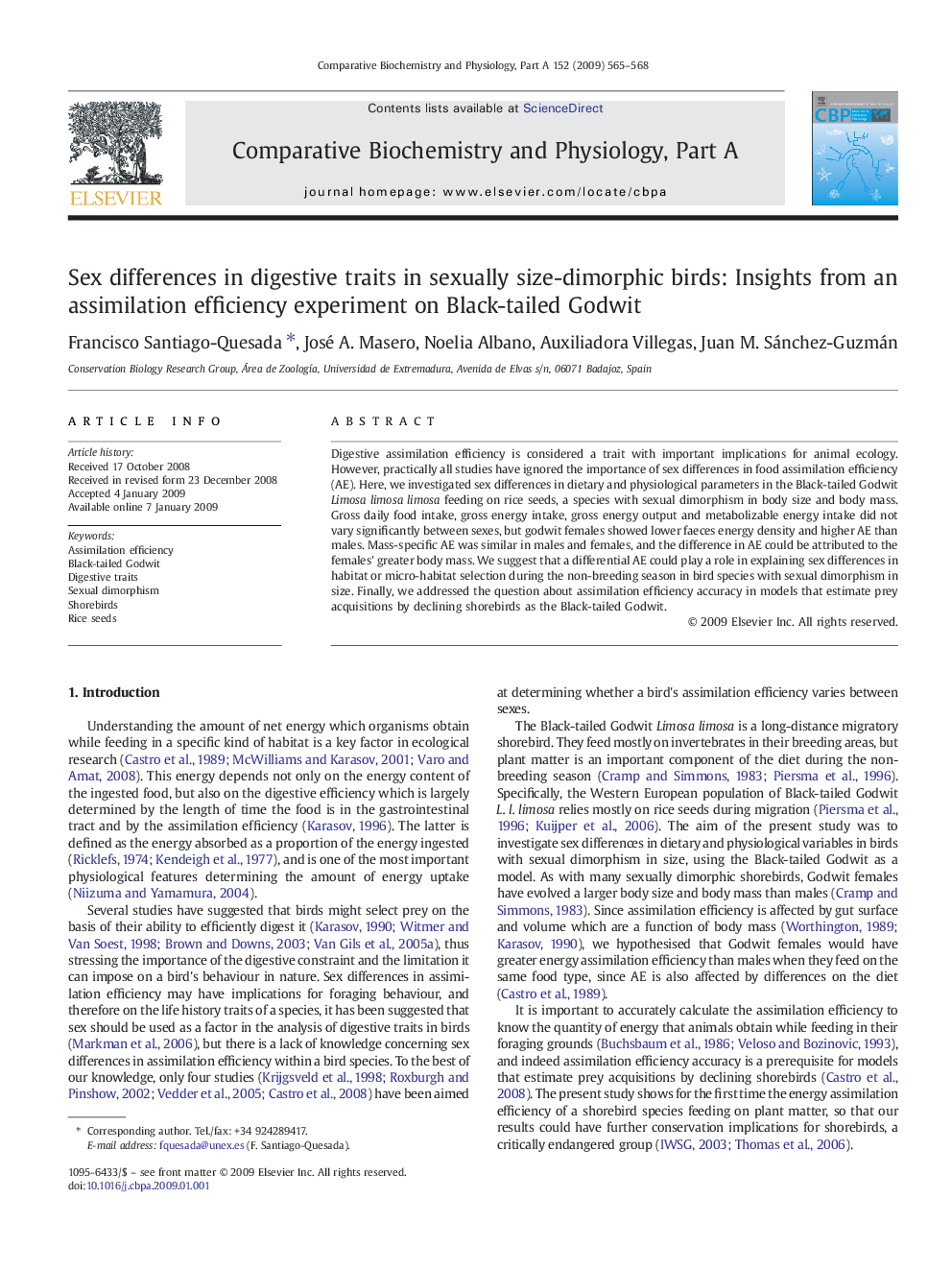| Article ID | Journal | Published Year | Pages | File Type |
|---|---|---|---|---|
| 1974641 | Comparative Biochemistry and Physiology Part A: Molecular & Integrative Physiology | 2009 | 4 Pages |
Digestive assimilation efficiency is considered a trait with important implications for animal ecology. However, practically all studies have ignored the importance of sex differences in food assimilation efficiency (AE). Here, we investigated sex differences in dietary and physiological parameters in the Black-tailed Godwit Limosa limosa limosa feeding on rice seeds, a species with sexual dimorphism in body size and body mass. Gross daily food intake, gross energy intake, gross energy output and metabolizable energy intake did not vary significantly between sexes, but godwit females showed lower faeces energy density and higher AE than males. Mass-specific AE was similar in males and females, and the difference in AE could be attributed to the females' greater body mass. We suggest that a differential AE could play a role in explaining sex differences in habitat or micro-habitat selection during the non-breeding season in bird species with sexual dimorphism in size. Finally, we addressed the question about assimilation efficiency accuracy in models that estimate prey acquisitions by declining shorebirds as the Black-tailed Godwit.
